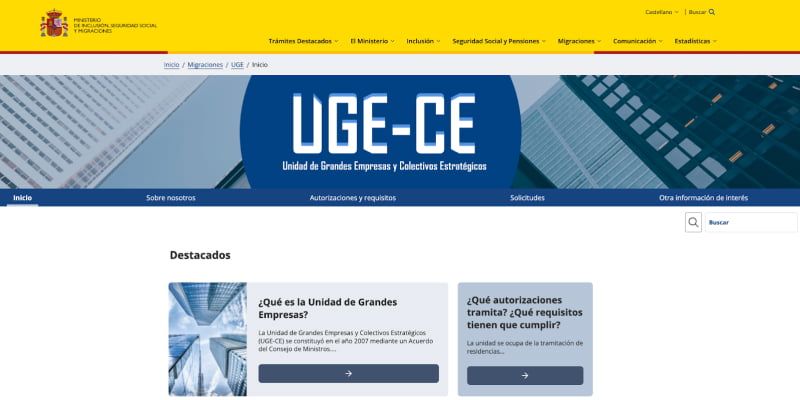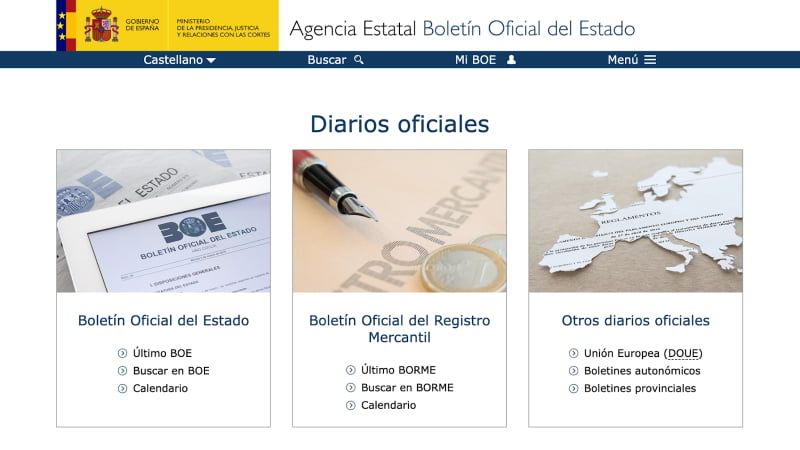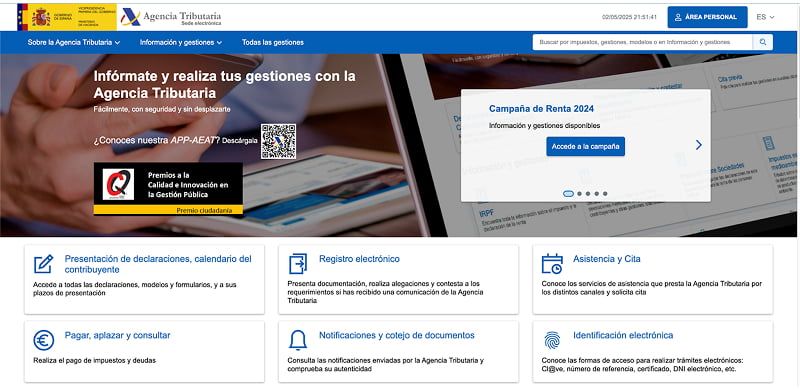So far, I’ve witnessed a growing interest among professionals interested in moving to Spain and safeguarding digital nomad residence.
This immigration avenue is rather appealing for professional employees and remote contractors pursuing Spanish residency and engaged in international projects.
Multiple preconditions, coupled with the applicable immigration legislation, determine residence permit procedures in Spain.
A candidate’s nationality is mandatory to obtain the permit. The option is available for international applicants except for EU, European Economic Area, and Switzerland nationals.
The applicants should not be under tax residency in Spain for 5 years before applying. This provision also pertains to the re-entry of tax residents who’ve left Spain temporarily.
A prospective candidate provides evidence confirming their sources of income. Applicants should confirm monthly earnings of €2,368, the equivalent of IPREM 200% for three consecutive months preceding the application.
Once an applicant intends to involve their family members, the following monthly rates apply for each dependent:
- €1,036, IPREM 75% for the initial dependent
- €345 IPREM 25% for other dependents.
Applicants for a Spanish digital nomad permit should provide their regular stream of income to verify financial viability. The evidence might include bank statements or invoices confirming payment receipts.
The nomad status requires the confirmation of a candidate’s professional history. Valid and effective employment contract for three months before the application date.
Registration and financial documentation should prove an applicant’s employer engagement in a continuous business activity over one year or longer.
In the case of self-employment, the applicants should prove stable contractual relationships solely with legally incorporated entities. The contract should be permanent or last for at least one year.
The applicants who collaborate professionally with local organisations or are hired by local entities cannot apply for a digital professional permit in Spain. This way, the country facilitates income derived from remote international sources.
The letter should detail the terms and conditions of engagement, affirming that the applicant's activities shall be conducted permanently under applicable stipulations of Spanish immigration law for freelancers.
The candidates should provide documents proving their qualifications, including educational background and professional experience.
The arrangements concerning ID, national insurance, and health coverage are contingent upon (1) the applicant's employment status and (2) the social security coordination agreement with the candidate’s country of origin.
Under bilateral accords, applicants employed beyond Spain should submit a valid private medical insurance policy with relevant coverage for them and their dependents.
Self-employed candidates should declare their intent to formalise the registration at the national insurance system and contribute therein after the application approval.
A candidate’s passport should be valid for 12 months from the application date.
My recommendation to all the prospective candidates is to seek expert legal counsel to correctly apply for a digital nomad permit. Specialising in international immigration and administrative law, I offer comprehensive support to mitigate the odds of refusal and shorten the procedural duration.
Contact our specialists
Acquiring a Digital Nomad Permit in Spain
Statute No. 28/2022 regulates the acquisition procedure. Under the legal stipulations in effect since the 1 January 2023, a distinct immigration classification for professionals within the digital solutions sector is established and formally recognised.
There are two principal avenues for applying for Spanish residency:
- If you reside in Spain temporarily under a tourist visa, the new status of digital nomad lets you claim Spanish residency for three years. The process is initiated through an authorised authority, the Large Business Unit (Unidad de Grandes Empresas (UGE). Following this period, a candidate may renew this visa for two years.
- You may also refer to your local Spanish Consulate. The candidates should submit accompanying papers to their local diplomatic mission. A one-year national visa is subject to prolongation for a three-year residency.
The typical procedural timeframe from initial paperwork submission to the final determination by the relevant governmental authority ranges from six weeks to three months.The timeframe varies because of multiple factors, including, but not limited to, the completeness and accuracy of the submitted documents, any supplementary requests from the immigration authorities, and the current operational capacity of the relevant departments.

The Ministry of Migration of the Kingdom of Spain Website
The digital nomad status is governed by a specific set of regulations, distinct from those applicable to other categories of residents. The criteria for granting this status in Spain turn on a defined level of financial capacity, the precise nature of the candidate’s activities, and be non-tax resident in Spain for 5 years before the application.
As a legal professional, I would advise my clients to remain cognisant that the legal framework of the Kingdom of Spain is subject to periodic revisions.
When initiating administrative procedures, it is paramount to rely on the most current interpretations provided by the Large Business Unit (UGE) and to adhere to the official publications of the State Official Gazette (Boletín Oficial del Estado (BOE).

Adopting a systematic approach is crucial, while even a minor deviation from the prevailing regulations will cause a potential refusal.The BOE Homepage
Documentation to Receive a Digital Nomad Visa in Spain
The process of procuring a digital nomad permit for Spain necessitates the meticulous assembly of a comprehensive set of documentation, each item thereof adhering to immigration regulations.
Beyond the completeness and contemporaneity of the submitted instruments, their legal probity and the requisite translation into the Spanish language are pivotal considerations.
You may initiate the NIE process before applying for digital nomad status or while during the assessment process. Safeguard your best option in advance through your national consulate or an authorised official in Spain.
The NIE absence disallows the commencement of the application procedure. Further, you should submit evidence of your employment or professional activity.
Once you are employed under the contract, please provide all the employment-related documents three months before the application date.
In case you are an independent professional, prove your commercial relationships with overseas clients:
- Service-level agreements
- Invoices
- Client correspondence
- Other documentation that affirms regular flows of income.
The registration of digital nomads in Spain requires submitting papers verifying financial standing. To reiterate, the income should be no less than 200% of the Público de Renta de Efectos Múltiples (IPREM) figure. The IPREM is established at €1,184.
To secure a digital nomad permit in 2026 as a freelance professional, the applicant's monthly income should be no less than €2,368, equal to €28,416 per annum.
The following documentation may be requested to verify financial flows:
- Statements of account from financial institutions covering the preceding 3- to 6-month period.
- Statements of cash flow. Confirmation of transactions from clients
- Tax declarations.
A non-negotiable requirement to acquire a nomad status in Spain is to possess valid health insurance with coverage for the entire period of residence in Spain. Candidates occasionally underestimate the importance of this stipulation, which results in refusal.
Another obligatory document is to prove the candidate’s qualifications. Acceptable forms of confirmation include: For due consideration, an applicant would typically present a degree qualification pertinent to their area of expertise, alongside formal confirmations of prior employment.
A portfolio illustrating completed projects bearing endorsements from the respective clients is also pertinent. Furthermore, a professional digital footprint, demonstrating a work history extending beyond three years.
Regarding fiscal responsibilities for the candidates, it is prudent for individuals conducting their professional activities remotely and residing in Spain to ensure they possess a thorough understanding of the relevant legal statutes
Under the provisions commonly referred to as the "Beckham regulations," a comprehensive grasp of the rules governing individual taxation and the criteria for determining tax residency is of paramount importance for the compliant discharge of tax obligations and the utilisation of statutory advantages like special fiscal arrangements applicable to foreign nationals temporarily resident in Spain.

Spanish Tax Authority Official Website
Taxation procedures in Spain are determined by whether an individual holds tax residency status. The legal provisions oblige candidates to comply with at least one of the following conditions:
- Maintaining residence within Spain for 183 calendar days of a tax year
- Possessing significant personal, property-related, or financial connections with Spain, encompassing, but not limited to, familial ties, primary asset location
- Performing business or professional activities.
The tax residency of a spouse and/or minor dependents in Spain may also be employed to ascertain the taxpayer's residency.
The Spanish digital nomad permit is not equivalent to the tax residency status. To be recognised as a tax resident, a candidate should account for the following information:.
Under the Spanish jurisdiction, a progressive structure of personal income taxation is implemented, whereby tax liabilities escalate in direct correlation with taxable emoluments.
The prevailing rates are as follows:
- 19% on taxable earnings up to €6,000
- 21% on earnings within the range of €6,001 and €50,000
- 23% on taxable earnings between €50,001 and €200,000
- 27% on earnings from €200,001 to €300,000
- 30% on taxable earnings exceeding €300,000, applicable from the year 2025, superseding the previous rate of 28%.
Grounds for Declining a Spanish Digital Nomad Visa
While the digital nomad status streamlines the acquisition of Spanish residency for international professionals, numerous flaws are causing reciprocal rejections.
The majority of such refusals are attributable to procedural oversights or an insufficient comprehension of specific aspects of the pertinent legislation. The omission of crucial details can place an applicant in a precarious position, frequently necessitating recourse to professional legal counsel after a rejection.
Here are the core oversights impeding successful attainment:
Submission of non-compliant documentation
Among the most prevalent oversights is sending documents lacking the requisite translation or apostille. Official stipulations mandate that all documents originating from outside the Kingdom are accompanied by translations in Spanish by a duly accredited translator.
For documentation emanating from non-EU nations, an additional apostille is mandatory. Presenting a contract in English without translation furnishes direct grounds for rejection.
The applicants often omit one or more mandatory documents, like a criminal record, health insurance, or a university degree. Whenever this is the case, the immigration authorities reject the application without the possibility of rectification.
Inconsistencies in declared information
Discrepancies arising between the provided application data and the accompanying papers constitute grounds for the refusal. Such inconsistencies may be construed as a contravention of the principle of accuracy and completeness of information, potentially stemming from inadequate supporting materials or a failure to adhere to the requirements of Spanish immigration law.
Inappropriate choice of immigration category
Situations arise wherein applicants seeking a freelance permit for Spain are declined due to an incorrect selection of immigration grounds, resulting in an improperly constituted set of documents. The provided papers may not match the set parameters, including business plans or references to local economic activity, which is at odds with the objectives of the digital nomad legislation in Spain.
The permit intends to execute professional duties for overseas clients assuming external income outside Spain. The Spanish digital nomad regulations stipulate that professional activities within Spanish territory automatically invalidate the issuance of the temporary residency permit.
Inability to substantiate financial standing
It is essential not only to present details of earnings but also to demonstrate their stability, regularity, and legitimacy. Bank statements ought to cover six months, including information on receipts, the entities, and currencies involved.
Failure to satisfy these requirements may cause refusal due to insufficient financial resources. Non-compliance with these requirements results in the forfeiture of the right to reapply for a Spanish Digital Nomad Permit without amending the submitted documentation, which typically engenders significant delays and uncertainty in the permit application process.
Legal Assistance to Obtain a Spanish Digital Nomad Visa
The procedure entails considerable complexities concerning (1) documentation preparation, (2) adherence to immigration regulations, (3) fiscal implications, and (4) engagement with the relevant official bodies.
In most cases, the successful conclusion of the procedure is the result of thorough and expert legal guidance. Assistance in securing the permit issuance commences with a detailed analysis of the applicant's nationality, income level, structure of employment contracts, professional standing, any prior immigration history, and the identification of any potential limitations.
The legal expert meticulously arranges all the required paperwork. Ongoing legal support in securing a Spanish Digital Nomad Permit embraces the application and liaising with the relevant government departments, which may request supplementary documentation, impose deadlines for the provision of clarified information, or necessitate revisions to the documents submitted.
A legal professional providing support throughout the procedure responds promptly to such requests, coordinating the applicant’s actions with official stipulations.
Your advisor will also challenge the decision to refuse Spanish residency via a nomad permit. He or she will prepare a formal objection, lodge an appeal, or initiate a resubmission of your papers. Without sound legal justification, your appeal will not be considered on procedural grounds.
The Spanish Digital Nomad Permit establishes a legal framework enabling remote professionals to secure lawful permission for residence within the jurisdiction.
Regardless of the employer's geolocation, the immigration mechanism allows applicants to legally reside and conduct professional activities in Spain. The opportunity opens the perspective for deeper integration with Spanish society by acquiring temporary residence and further permanent resident entitlement.
Compliance with the set immigration law stipulations, coupled with continuous residence and the fulfilment of tax obligations, provides a framework to acquire long-term resident status. Further, a candidate may apply for full citizenship in Spain.
The Spanish Digital Nomad Permit is not only an efficient mechanism to relocate highly skilled professionals and promote a novel economic landscape, but also provides a legally robust route towards achieving full legal status within a culturally rich and socially advanced EU nation.
As a certified specialist in this field, I offer prospective clients comprehensive support to obtain digital nomad permit in Spain.









